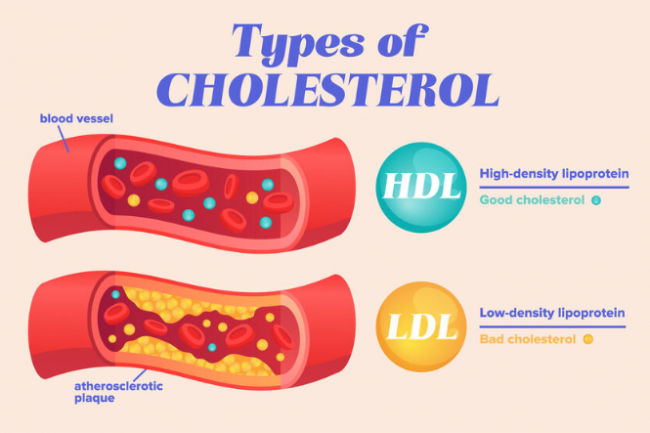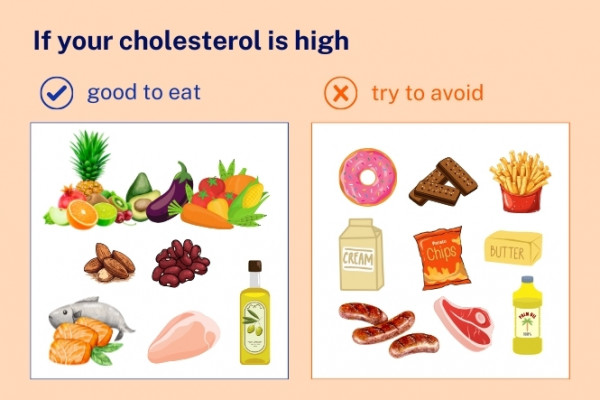What is high cholesterol?
Cholesterol is a form of fat found in the body which is needed to build cells, make some hormones and help with digestion and metabolism. Cholesterol is carried around the body in the blood stream by lipoproteins, which act like ‘couriers’. There are 2 types: low-density lipoprotein (LDL) cholesterol and high-density lipoprotein (HDL) cholesterol.
High cholesterol (known as hypercholesterolemia or dyslipidemia) is when there's too much LDL cholesterol and/or not enough HDL cholesterol in your blood. LDL is often referred to as the ‘bad’ cholesterol, while HDL is known as the ‘good’ cholesterol’. Learn more about LDL and HDL cholesterol.
When you have too much LDL cholesterol in your blood, it can stick to the inside of your artery walls. As it builds up, it causes the arteries to narrow and harden (atherosclerosis). This makes it harder for blood to flow through your arteries and increases your risk of heart disease or stroke.

Image credit: 123rf
What causes high cholesterol?
Causes of high cholesterol can differ from person to person. Some causes can be changed, while others can’t.
Causes you can change include:
- how much refined sugar or unhealthy fats you eat
- how much alcohol you drink
- how much physical activity you get
- being overweight, especially if you carry a lot of weight around your middle (abdomen)
- smoking.
Causes you can’t change include:
- your age – as you get older your liver is less able to remove LDL from your blood
- your gender – women tend to have higher HDL than men until they reach menopause, when total and LDL cholesterol levels can rise and HDL levels can drop.
- your genes (family history).
Some medical conditions (eg, diabetes, chronic kidney disease, hypothyroidism) can cause unhealthy levels of cholesterols, as can some medicines. Talk to your healthcare provider if you're concerned about this.







